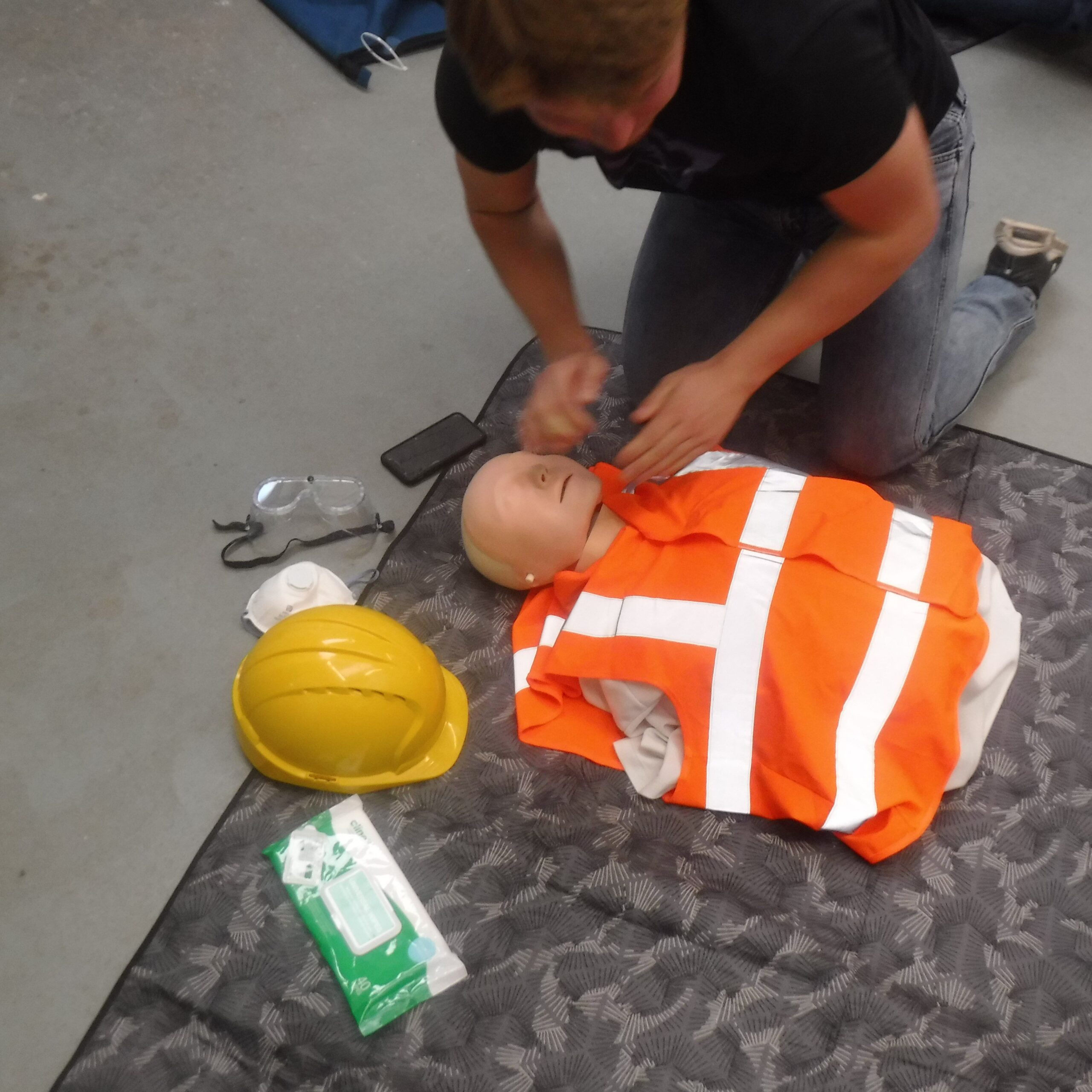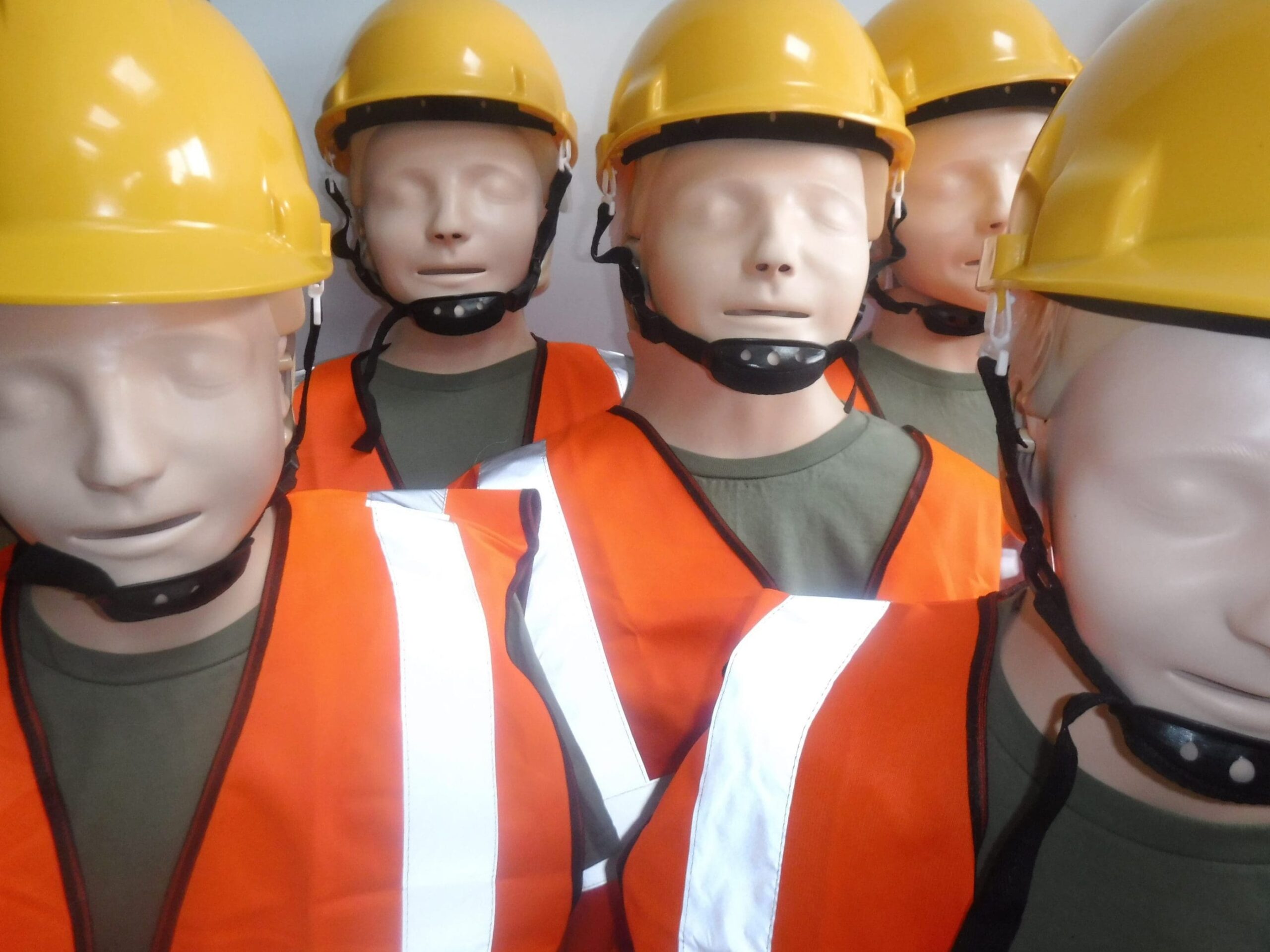A background as a paramedic with over 20 years’ frontline experience puts established trainer Andrew Barras in the perfect position to deliver first aid training for clients. Whether it is for those working in offices, or potentially hazardous environments, or those who use cutting tools, there is an appropriate regulated First Aid course that Decisive First Aid can deliver.
It’s a requirement that businesses have sufficient numbers of trained first aiders on site at any one time, to ensure the wellbeing and safety of the workforce. Andrew set up Decisive First Aid, to deliver quality courses that meet that challenge confidently. Candidates will benefit from the underpinning knowledge, the practicing of skills, and the building of confidence, so that they can act decisively and effectively in a medical or traumatic emergency.
In addition, Decisive First Aid specialises in courses for those who work in manufacturing and engineering, or in hazardous environments such as railways, construction, glazing and arboreal work. Here, an accident at work could result in a far more serious situation.

“Having completed a one-day first aid training course is one thing,”
said Andrew,
“but when you’re in a situation where someone is using an angle grinder or a chain saw, that’s a very different proposition, should there be an accident.
“As a paramedic I became familiar with this type of scenario, and use my expertise and experience to provide specialist training for those who might be faced with quite devastating injuries. And often, someone working trackside on the railways, or on farmland or in woodland for example, will also be in a remote location, so knowing how to deal with a serious accident is vital.
“I’ve also dealt with a lot of situations where people were wearing PPE as part of their work and that’s something not all courses or first aid providers can cover. If you’re assessing someone who is wearing a helmet, what do you need to do differently? In the worst-case scenario, if you’re having to give CPR to someone in protective clothing that’s very different to giving it to someone who is just in a thin tracksuit top.
“On the advanced courses, candidates get to practice with advanced trauma dressings, haemostatic dressings and tourniquets, so actions and treatments have been rehearsed should an accident occur.”
All courses are tailored to individual needs, and Andrew and his team have devised a blend of instruction, practical exercises and some creative demonstrations using home-made models to keep everyone interested, engaged and open to learning. Understanding and practice go hand-in-hand on their courses.
There’s also been an increased focus over the past few months on delivering first aid in a time of COVID-19 and social distancing.
“Having 24 years’ experience as a paramedic I’ve been practising Infection Prevention and Control for a long time, and so being able to integrate those practices when training first aid has been straightforward. Of course, there has been added investments so that when it comes to our ‘open courses’ everybody has sole use of their own equipment, there’s no sharing of any kit, and of course an additional COVID-19 risk assessment is carried out at each new venue prior to the course. Most of the time I can wear a clear visor and stay socially distanced, but when it’s needed, extra safety measures are introduced.”
said Andrew.
“Over the years I’ve become impressed by the number of businesses that have invested in an Automated External Defibrillator for their premises or worksite. Not all defibrillators are set up or work in the same way. By taking a few photos I quickly put together a PowerPoint presentation so that the workforce get a tailored lesson on their own defibrillator which will optimise the use of the equipment they have invested in, should the need arise.”

For those with defibrillators, Andrew recommends the AED Preparation Kit pouch, which costs around £15 but is often not bought along with the equipment. The pouch can dramatically reduce the time it takes to deliver a shock.
Andrew also recommends swift action by those whose First Aid at Work certificates are due to run out before March 2021. Lockdown in March 2020 saw the HSE allow extensions to those who needed to renew their certificates but found it difficult to do so due to coronavirus restrictions. That extension is due to run out in March this year.
“What we are going to find is that all those who took advantage of the extension last year will all need to be assessed by the end of March, but so will those whose certificates are due to run out early this year. That’s going to result in increased demand for training and assessment.”
said Andrew.
“It makes sense to get things moving very soon to avoid that period when it looks like demand could outstrip supply.”
To find out more about the courses provided by Decisive First Aid, call 01462 379879, email info@decisivefirstaid.co.uk or visit the website Decisive First Aid













